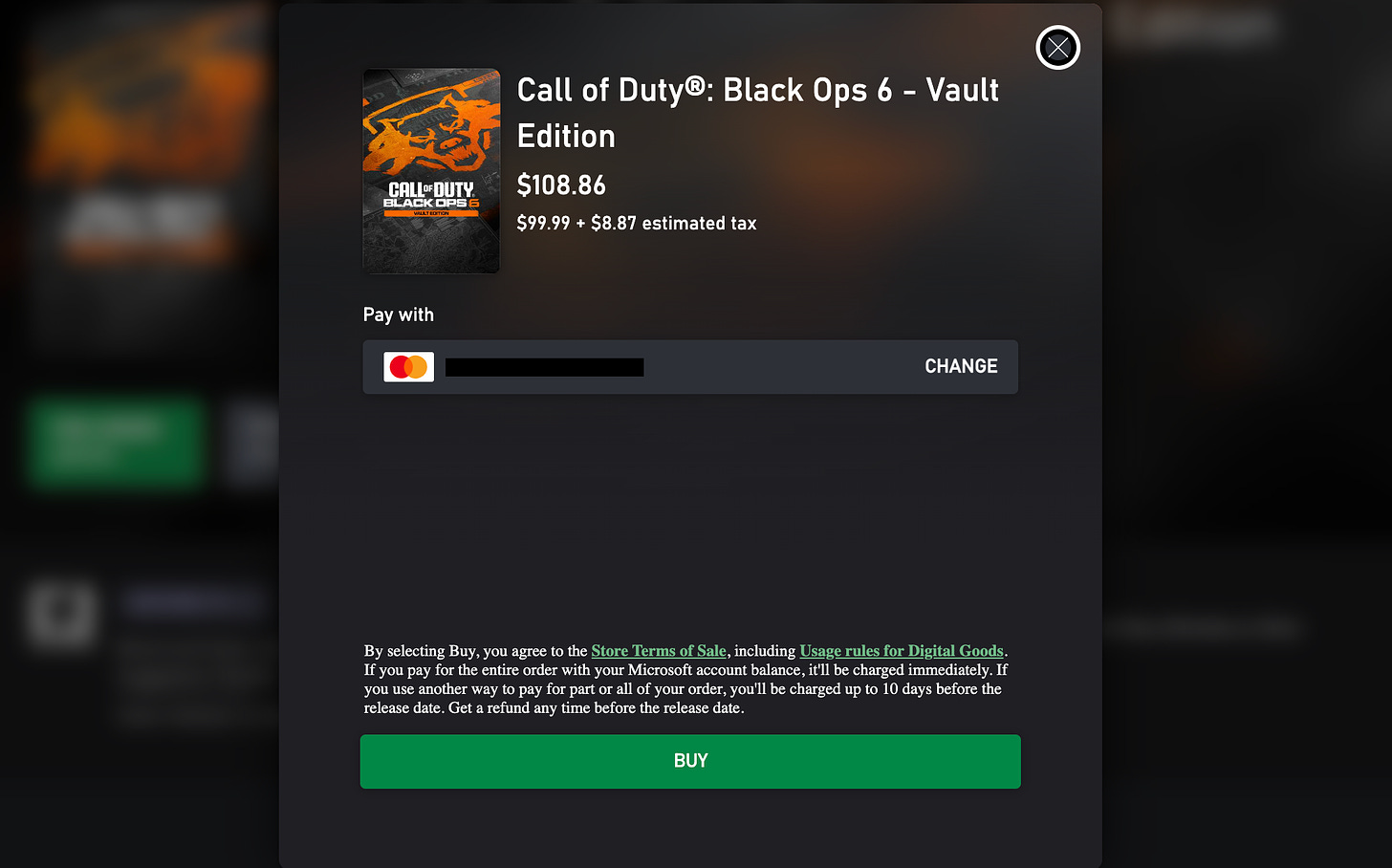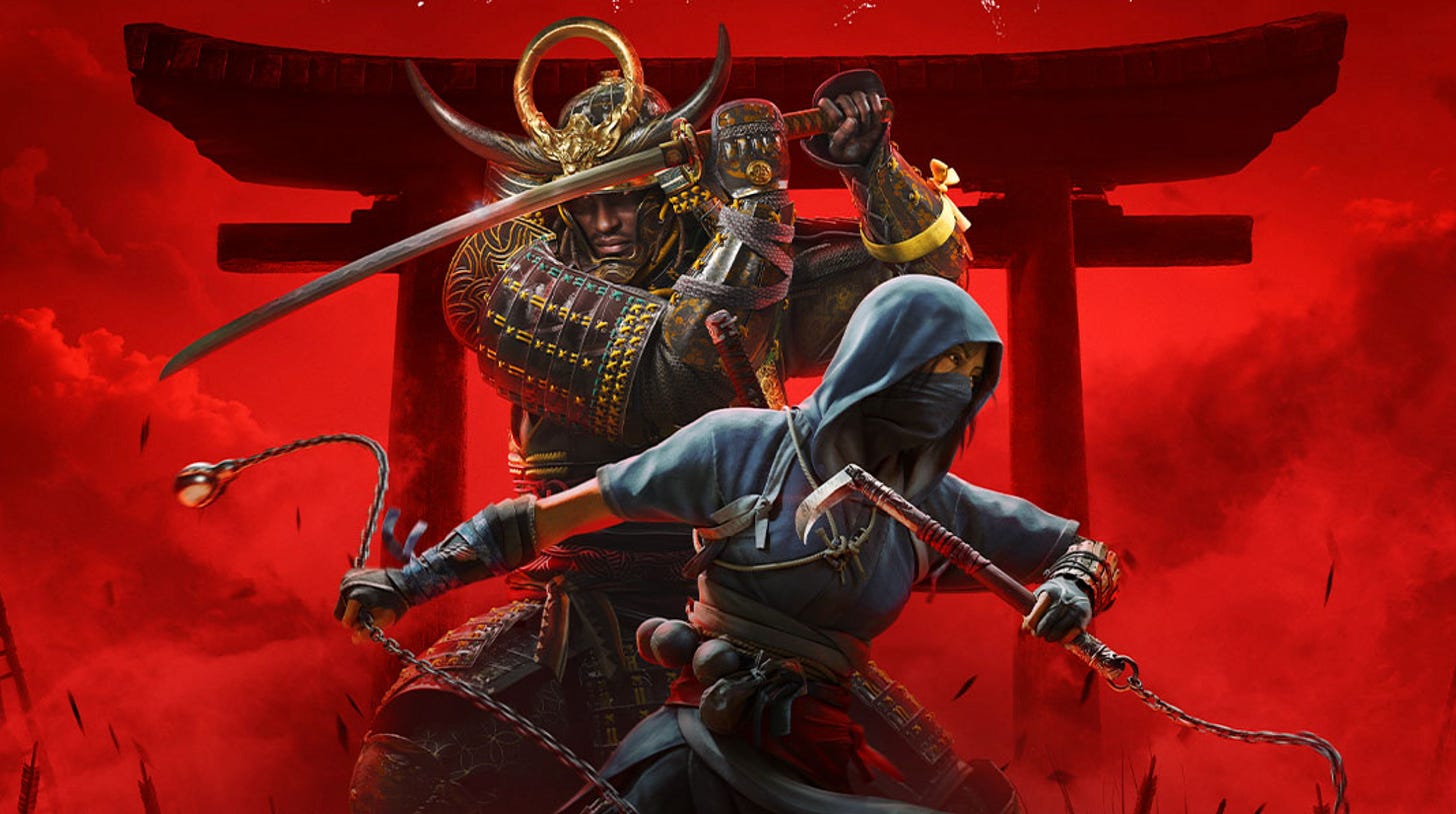New law will change how digital games are sold, at least in California [Update]
Terms such as "buy" and "purchase" will be barred unless a seller clearly warns users they are paying for a license that could be revoked.
Any retailer that sells a downloadable video game will soon need to warn customers, at least in the state of California, that the game they’re purchasing may not be theirs to play forever.
That warning will be required in California as of January 1, thanks to AB 2426, a consumer protection and false advertising bill signed earlier this week by the state’s governor, Gavin Newsom.
The bill makes it illegal for sellers of any digital goods—games, movies, books, etc—to use terms like “buy” or “purchase” during a transaction without the inclusion of a warning about the potential impermanence of what they’re paying for.
“The legislation was motivated by consumers losing access to content,” the bill’s sponsor, assemblymember Jacqui Irwin (D-CA), told Game File.
“The main story that brought this issue to my attention was Sony’s announcement at the end of last year that digital copies of purchased content from Discovery would be revoked,” she said, referring to the news in December that PlayStation was about to remove access to Discovery shows that people had paid for.
Sony and Discovery worked things out at the 11th hour, but the incident motivated Irwin to press ahead and introduce a bill this past February.
After the bill was introduced, another incident affirmed to Irwin that more consumer protection was needed.
In April, Ubisoft removed players’ licenses to purchased copies of the always-online racing game The Crew. The move doubled down on the game’s delisting in late 2023 and ensured it would no longer be playable.
“Ubisoft’s actions with The Crew further highlighted just how widespread this issue is,” Irwain said.
What California’s always-online content law requires
According to the new law, anyone in California who buys a game that mandates an internet connection must be shown a “clear and conspicuous” warning that “states in plain language that ‘buying’ or ‘purchasing’ the digital good is a license.”
Or the customer needs to acknowledge that they know they’re buying a limited license, presumably by checking off an option that says as much.
Either way, the seller also needs to provide purchasers with the conditions of the license and a warning, if applicable, that a loss of rights to aspects of the content—such as the expiration of music licenses—could cause the game or other digital work to be pulled.
Games exempt from the law include those that are offered for free, offered via a timed subscription or offered alongside an offline mode that would allow the game to run without an internet connection.
The parties that will need to be compliant include operators of popular gaming stores, such as Valve, Xbox and PlayStation. Representatives for Valve and PlayStation did not reply to a request for comment by press time. Ubisoft and Microsoft reps declined to comment.
A game seller that runs afoul of the new rules could face fines of $2500 for each non-compliant listing and sale and/or be found in violation of California’s Unfair Competition Law.
While the law only extends to California’s borders, the state does represent an outsized portion of U.S. spending on games. California has accounted for about 11% of physical game spending this year so far, Circana analyst Mat Piscatella told Game File. A breakdown of digital spending by region was not available.
Update - Oct 1., 2024: This story has been updated to reflect the broader intended scope of the law. This article originally focused on AB 2426’s impact on always-online games, due to a reading of the law that was, in retrospect, narrower than Assembly member Irwin’s intention and the potential application of the law. Such games are certainly impacted, but many more will be in California as well.
After a follow-up conversation with Irwin’s office, it’s clear that AB 2426 is intended to impact any digital game sold with DRM (digital rights management), which would encompass nearly all games sold through video gaming’s digital marketplaces. The law’s intent is that sellers of such games could not use words such “buy” or “purchase” for a game without also providing a “clear and conspicuous” warning to users that they are buying a potentially revocable license, along with the terms of the license.
The text of the law lists some types of digital media offerings that would be exempt, including this category:
(C) Any digital good that is advertised or offered to a person that the seller cannot revoke access to after the transaction, which includes making the digital good available at the time of purchase for permanent offline download to an external storage source to be used without a connection to the internet.
My original reading of that exemption was that it included games that could be played offline in perpetuity, including those that are playable via a platform’s offline mode. Download a game to your home Switch, play it offline forever, for example. But such games typically still contain DRM, and the seller cannot know that users might set up their devices to play them offline. Therefore, “offline modes” such as the ones Ubisoft plans for the newer Crew games are unlikely to qualify for exemption. (This point of confusion is on me, as should have better clarified what Irwin meant in terms of offline modes being a workaround).
During our interview last week, Irwin articulated a clear exemption: a “seller may sell the same digital good with an option for permanent offline download, like GOG does,” she said. That refers to the GOG store’s offering of games with no DRM, no special conditions for offline play needed.
To reflect this broader scope of the law—which is, overall good news for consumers in California—I’ve tweaked the headline and lede. The rest of the story follows, as originally published, with one additional note in the section about offline modes.
Offline modes as a workaround
One way around the law for game sellers—and game makers, who sometimes are one and the same—would be for games to ship with offline modes. Earlier this month, Ubisoft said the most recent two Crew games, including last year’s The Crew Motorfest, will receive offline modes in the future. Promises alone aren’t enough, and Ubisoft will have to update those games to satisfy the California statute. [See prior update that the offline mode would likely need to be DRM-free].
It might be obvious to players that the online multiplayer games they pay for have a lifespan contingent on a publisher keeping their servers up, but it’s not always obvious which games have that dependency. This year’s Call of Duty: Black Ops 6, for example, requires an online connection at all times, even when playing the game’s story-driven campaign mode. That would make it subject to the California law.
Currently, trying to buy Black Ops 6 through Microsoft’s Xbox store includes an option to “buy” the game, with a fine print link to Microsoft’s “store terms of sale.” Those terms are thousands of words long and include this line that appears in plain text, visible after scrolling through other terms: “Software and other Digital Content made available to you through the Store is licensed, not sold, to you.”
The California law states that any such warning of the always-online game’s impermanence must be “clear and conspicuous,” which it defines as follows:
“Clear and conspicuous” means in a manner that clearly calls attention to the language, such as in larger type than the surrounding text, or in contrasting type, font, or color to the surrounding text of the same size, or set off from the surrounding text of the same size by symbols or other marks.
While it’s hard to imagine the servers for a Call of Duty game being shut down any time soon, online-only games run the risk of disappearing.
Sony pulled the $40 online-only first-party game Concord earlier this month, though it did refund all purchasers. Just this week, the makers of the $20 online multiplayer game Hood: Outlaws & Legends, which was launched in 2021, said the game would stop working in early 2025.
Irwin is hopeful that California’s new approach will make things more clear for purchasers of internet-reliant digital content that they’re simply not getting them forever.
And the law might, she hopes, compel companies to make their digital works last longer, by negotiating for longer licensing terms, for example. The law may even bolster consumer demand for cheaper rental or subscription options, she said. These would be welcome alternatives, she noted, for “paying a premium for false ownership.”
Item 2: Ubisoft in crisis mode (again)
[This item can now be read as its own article via this link]
Item 3: In brief…
📉 Shares of Polish game studio 11Bit are down nearly 40% since it launched Frostpunk 2 last week, Reuters reports, after analysts expressed disappointment with the PC game’s reception.
Peak concurrent player counts of around 35,000 fell short of one analyst’s expectation of 80,000-100,000.
11Bit announced on Monday that it had sold 350,000 copies of the game.
🎮 Ghost of Yōtei, a sequel to 2020’s PlayStation hit Ghost of Tsushima, was unveiled by Sony earlier this week and dated for 2025, ensuring it’ll be one of the marquee PS5 releases of the coming year.
Development studio Sucker Punch said the game will take place in the early 1600s, 300 years after the original samurai adventure, and feature a new protagonist, a woman named Atsu. (Watch the trailer.)
😲 Sony is also publishing another remaster to a recent game, pegging a graphically upgraded version of 2017’s PS4 hit Horizon Zero Dawn for PS5 and PC in October, with the option for owners of the original to pay $10 for an upgrade.
🗓️ Capcom has dated Monster Hunter Wilds (PC, PlayStation, Xbox) for February 28, 2025, as that month keeps getting more stuffed.
🤔 Palworld has been released for Sony’s PlayStation 5, but not in Japan, where Nintendo is suing its studio, Pocketpair, for still-unspecified alleged patent infringement. (The release date in Japan is TBD).
The game was a massive hit on PC and Xbox earlier this year.
In July, Sony announced a joint venture with Pocketpair to manage Palworld’s intellectual property beyond games.
❓ Once-prolific developer/publisher Level 5 keeps announcing games, but has few releases around the corner, Sports Illustrated reports.
It will release a new game in the puzzle-solving Professor Layton series next year, but a major new crime-solving game, Decapolice, was once slated for 2023 and is now scheduled for release in 2026.
💬 Duolingo is adding an adventure game to help teach languages, Venture Beat reports.
🔎 An AI tool is being used to strike AI-generated images of Super Mario from social media, The Verge reports.
📍 Nintendo’s new museum in Kyoto is very fun to visit but light on explanatory text or previously unseen artifacts from the company’s history, according to press tours of the facility.
Consistent with its penchant for secrecy, Nintendo “declined to say how many employees worked at the museum, who managed it or what it cost to renovate the building,” per the NY Times.








Fun (or not so fun) fact: The price for Zero Dawn in the Playstation Store has apparently doubled after the remaster announcement (was 10, now is 20 Euros). This may be specific to Europe and/or an isolated incident. But that would put the full price of the remaster to 30, not 20 Euros for everyone who doesn't already own it. I'm not saying it's not deserved, especially for Zero Dawn, but it also illustrates the lengths publishers and/or platforms go to to maximize profits in the current games market landscape. End of unsolicited sermon.
Honestly, from all I have seen, Outlaws looks like a shallow and average game sold at a premium. Many critics cite fatigue with Ubisoft's open world and game design approaches, which were already becoming tiresome with Far Cry 5 and Wildlands, two games I enjoyed but started to feel very long in the tooth by the end. I didn't even finish AC Origins because it got pretty tedious.
Sure, the online mobs do have an impact and often act unfairly and with a deeply biased agenda. But if Outlaws is underperforming, I think 90% of the problems are in-house. Good games dismiss online mobs.